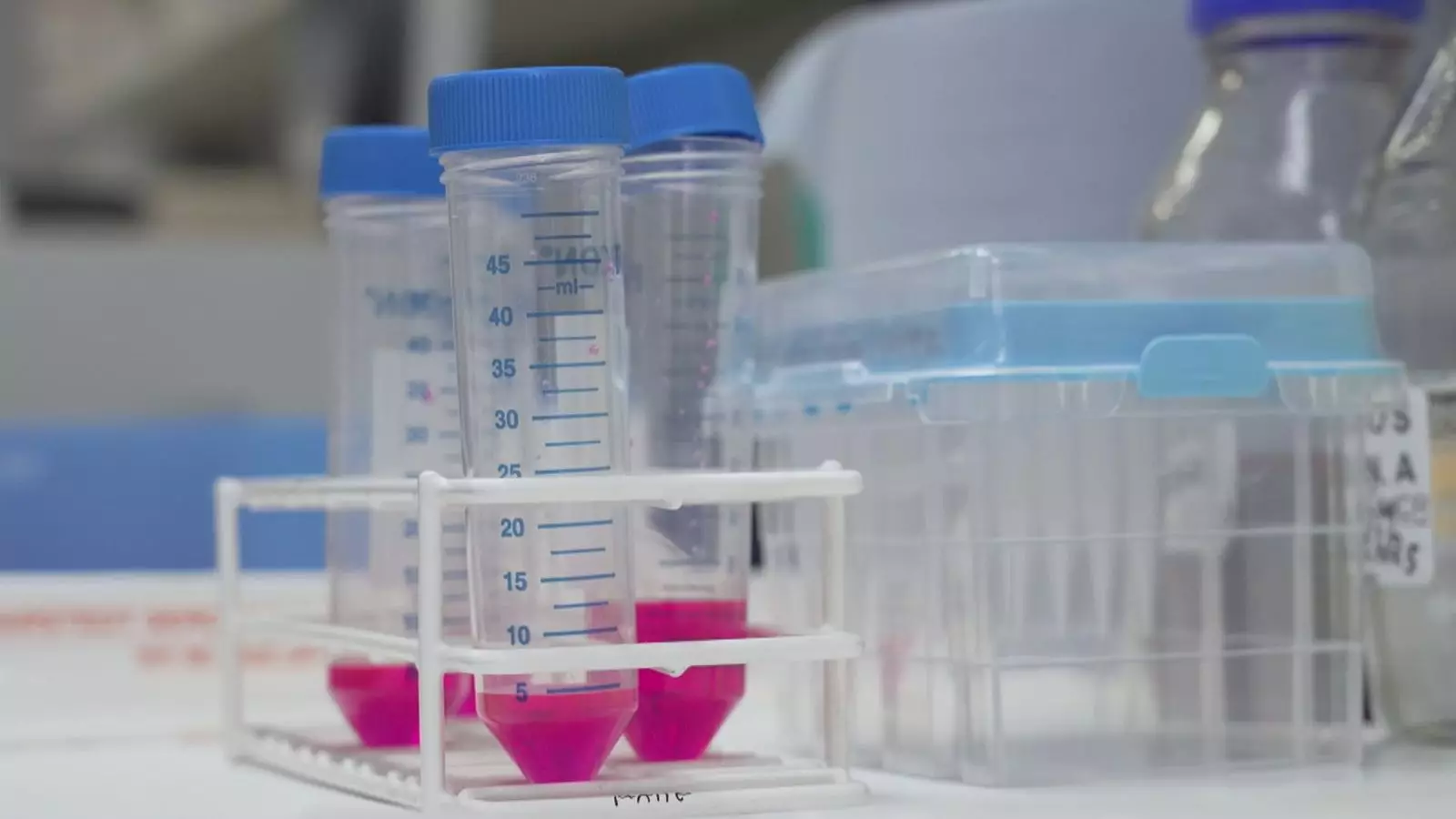In the landscape of cancer therapies, the advent of capivasertib is nothing short of revolutionary. Announcing its launch via the NHS, this new drug promises a leap forward in treatment options for breast cancer patients, particularly those battling the most prevalent form of the disease. Patients are describing it as “game-changing,” a term that seems to be inadequately steeped in the gravity of their experiences. The sheer emotional weight hidden in that phrase reflects a lifetime fraught with anguish, uncertainty, and, finally, a whisper of hope.
The scientific community conducted two decades of rigorous study to bring capivasertib to the forefront of treatment. The accolades surrounding this drug highlight an alarming need for more options that can extend lives and enhance quality of life. As Professor Nicholas Turner aptly notes, “we need new drugs that will help our existing therapies work for longer,” highlighting a critical imbalance in the cancer care paradigm. Traditional therapies have long been stuck in a loop, offering mere palliative care rather than transformative solutions. Capivasertib addresses this profound necessity by complementing hormonal therapy to effectively double the time before cancer cells succumb to progression.
Stories of Resilience and Renewal
The narratives of patients like Elen Hughes serve as poignant testaments to the potential of capivasertib. Mrs. Hughes, a mother of three, faced the relentless grip of breast cancer not once but twice. Her emotional resilience shines through when she states, “I don’t look at myself anymore as a dying person.” This sentiment resonates deeply across the affected community and showcases how innovative treatments can revolutionize perspectives on life and mortality.
However, the contrast between this newfound hope and the grueling process these patients face highlights a crucial point: while medical advancements progress, the healthcare system must keep pace in accessibility and delivery. The fact that Mrs. Hughes had to first access this medication through private healthcare underscores a systemic flaw in our society. Capivasertib is not just another drug—it’s a lifeline, and every patient who requires it should have the right to receive it without navigating the treacherous waters of financial capacity.
The Statistically Significant But Emotionally Insignificant
When examining the statistics surrounding capivasertib, the numbers reflect progress: an extension from mere months to double that time before cancer advancement. Yet, these figures often fail to convey the emotional resonance of such extensions. “In cancer, and the land that we live in, really we can do a lot in six months,” Hughes remarks, emphasizing how fleeting time is. This invokes an ironic truth about statistics; they offer a sanitized version of reality, one that overlooks the human experiences tied to each data point.
The call for increased genetic testing prior to treatment, as urged by Prof. Turner, highlights the nuanced complexity of cancer diagnostics and treatment options. Currently, many patients are caught in a cycle of trial-and-error, waiting for a breakthrough that could appropriately address their specific mutation. This scenario raises important questions about the healthcare system’s commitment to proactive measures versus reactive ones. Large segments of the population suffering from advanced breast cancer could benefit immensely if genetic testing was routinely integrated into standard care practices.
A National and Global Imperative
As capivasertib enters the NHS repertoire, it signals not just a local success story but a global imperative in the ongoing battle against breast cancer. The emphasis on genetic mutations underscores the pressing need for personalized medicine, a paradigm shift that could ultimately influence a range of cancers beyond breast cancer. This progressive approach could lead to early interventions that allow patients to escape the dire trajectories predicted by traditional methodologies.
The importance of accessibility cannot be overstated. While capivasertib stands as a symbol of hope, it also acts as a mirror reflecting society’s deeper challenges: inequality in healthcare access, the profound need for systemic change, and an urgent call to revolutionize how we perceive and treat diseases. The journey ahead isn’t solely about innovation in pharmaceuticals; it’s about reconceptualizing the entire patient experience.

Leave a Reply